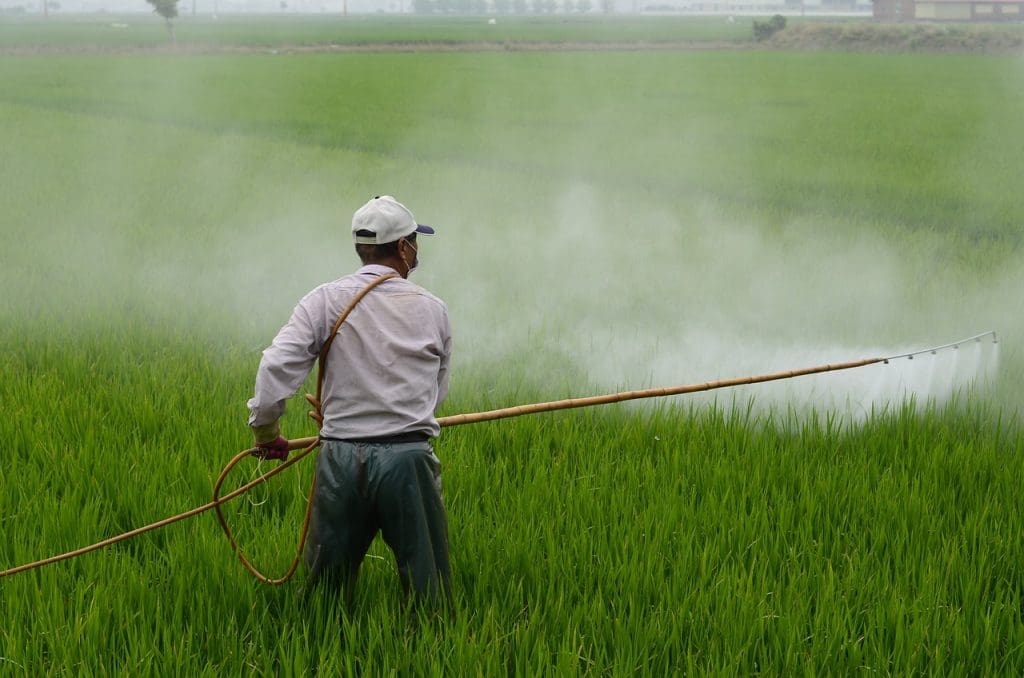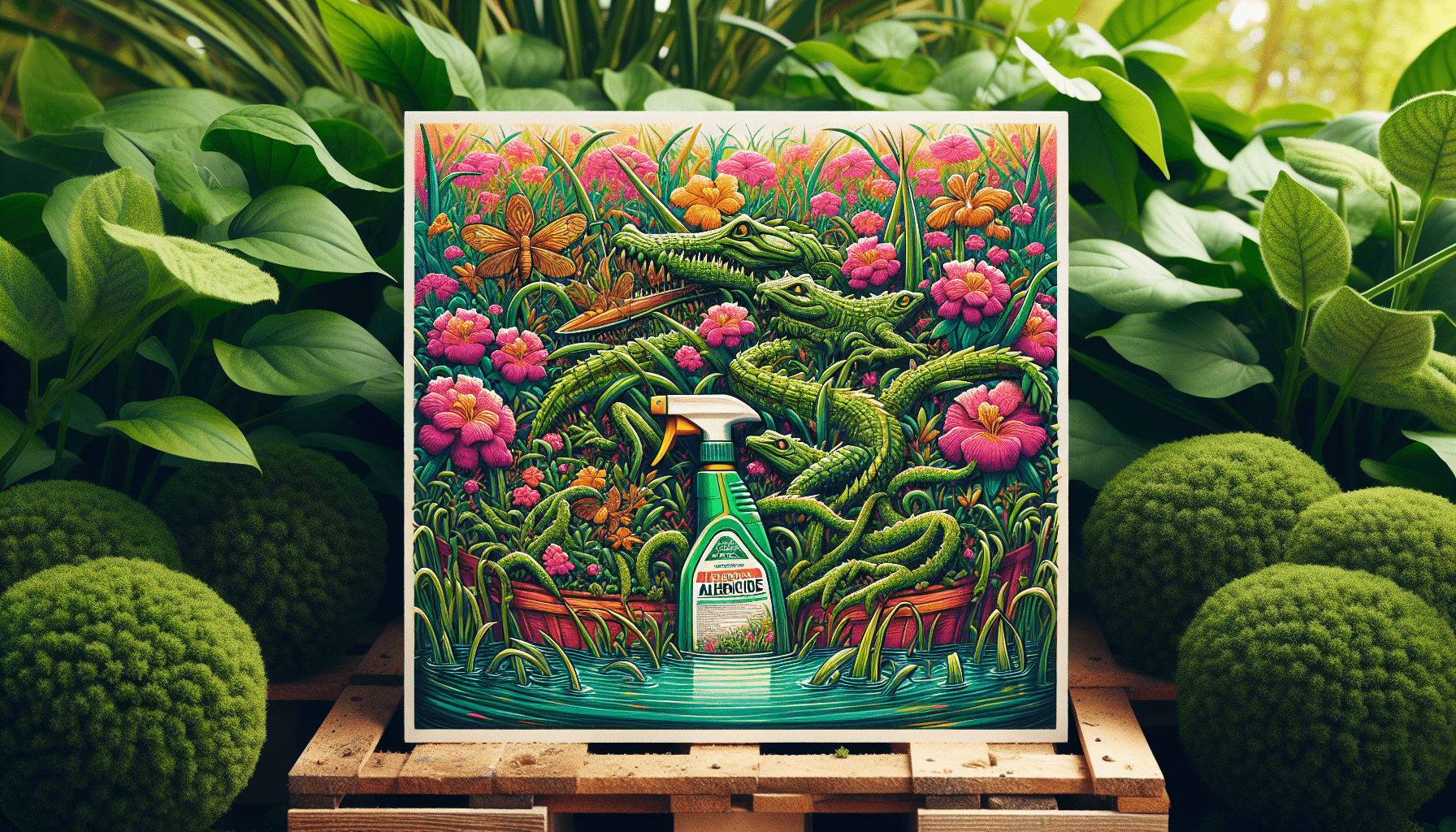Welcome to your go-to guide for tackling one of the peskiest aquatic plants around! In “Most Popular Alligator Weed Control Products On The Market,” you’ll discover a handpicked selection of highly effective solutions to manage and eradicate alligator weed. From herbicides to eco-friendly alternatives, this article is packed with practical tips and recommendations to help you reclaim your ponds, lakes, and waterways from this invasive species. Dive in and find the perfect tool to restore the health and beauty of your aquatic landscape. Have you been struggling to keep alligator weed under control in your yard or water bodies? You’re not alone. Alligator weed is one of the most aggressive invasive species out there. It can quickly take over both terrestrial and aquatic environments, making land and water management a serious challenge. Fortunately, there are effective control products available to help you manage this pesky weed. Let’s dive into some of the most popular alligator weed control products on the market to help you find the best solution for your needs.
Understanding Alligator Weed
Before we get into the products, it’s essential to understand what alligator weed is and why it can become such a problem. Alligator weed (Alternanthera philoxeroides) is a perennial plant native to South America. It has hollow stems that allow it to float on water surfaces, forming dense mats that can clog waterways, disrupt ecosystems, and even cause flooding.
Why Is Alligator Weed a Problem?
Alligator weed competes with native plants for resources, thereby altering the natural balance of ecosystems. It obstructs water flow in irrigation channels, lakes, and rivers, making water management more difficult. Plus, dense mats of alligator weed can create breeding grounds for mosquitoes and other pests, which is another reason why effective control is crucial.
Categories of Alligator Weed Control Products
There isn’t a one-size-fits-all solution when it comes to alligator weed control. Depending on the severity of the infestation and the specific conditions of your environment, different products might be more or less effective. Here are some main categories of alligator weed control products:
- Herbicides: These are chemical solutions specifically designed to kill or inhibit the growth of weeds.
- Biological Controls: These include natural predators like insects or pathogens that feed on alligator weed.
- Mechanical Controls: These are physical methods for removing or destroying weeds.

Popular Herbicides for Alligator Weed Control
Herbicides are often the go-to solution for many people battling alligator weed due to their efficacy and ease of application. Let’s look at some of the most popular ones on the market.
1. Glyphosate-Based Herbicides
Glyphosate is a non-selective herbicide that kills most plants on contact. It’s one of the most widely used herbicides globally.
Advantages:
- Highly Effective: Kills both the roots and the shoots of the plant, ensuring it does not grow back easily.
- Quick Action: Works faster compared to many other herbicides.
Disadvantages:
- Non-Selective: Glyphosate will kill other plants it comes into contact with, so it’s crucial to apply it carefully.
- Environmental Impact: Overuse can lead to environmental concerns, such as soil degradation and water pollution.
Popular Brands:
- Roundup: A household name and widely trusted product.
- Rodeo: Specifically designed for aquatic weed control.
| Brand | Suitable For | Application Method | Effectiveness | Cost |
|---|---|---|---|---|
| Roundup | Terrestrial areas | Spray | High | Moderate |
| Rodeo | Aquatic environments | Spray (Aquatic) | High | High |
2. 2,4-D Amine
2,4-D Amine is another popular herbicide, particularly effective against broadleaf weeds like alligator weed.
Advantages:
- Selective: Primarily targets broadleaf weeds, which means it can be used without harming grasses.
- Cost-Effective: Generally cheaper than many other herbicides.
Disadvantages:
- Limited Spectrum: Not effective against all types of weeds.
- Resistance: Longer-term use can lead to resistance in weed populations.
Popular Brands:
- Weedar 64: Known for its effectiveness and affordability.
- Aquacide: Suitable for aquatic environments.
| Brand | Suitable For | Application Method | Effectiveness | Cost |
|---|---|---|---|---|
| Weedar 64 | Terrestrial areas | Spray | Moderate | Low |
| Aquacide | Aquatic environments | Spray (Aquatic) | Moderate | Moderate |
3. Diquat Dibromide
Diquat Dibromide is commonly used for quick knockdown of aquatic weeds.
Advantages:
- Rapid Action: Fast-acting formula that provides quick results.
- Aquatic Safety: Safe for use in water bodies where fish and other aquatic life are present.
Disadvantages:
- Short-Term Effect: Often requires frequent applications.
- Non-Residual: Does not provide long-term weed control.
Popular Brands:
- Reward: A commonly used brand for both terrestrial and aquatic weed control.
- Weedtrine-D: Specifically designed for aquatic weed management.
| Brand | Suitable For | Application Method | Effectiveness | Cost |
|---|---|---|---|---|
| Reward | Both environments | Spray | High | High |
| Weedtrine-D | Aquatic environments | Spray (Aquatic) | High | Moderate |
Biological Controls for Alligator Weed
Biological control methods leverage natural predators or pathogens to manage weed populations, potentially offering a more sustainable approach.
1. Alligator Weed Flea Beetle (Agasicles hygrophila)
The Alligator Weed Flea Beetle is a biological control agent that feeds exclusively on alligator weed.
Advantages:
- Environmentally Friendly: Does not involve chemicals, reducing environmental impact.
- Sustainable: Once established, beetle populations can maintain control over weed populations.
Disadvantages:
- Slow Acting: Takes time for beetle populations to grow and make a significant impact.
- Environmental Limits: Effectiveness may vary based on climate and other environmental factors.
2. Alligator Weed Stem Borer (Vogtia malloi)
This is another biological control option that targets alligator weed by boring into its stems.
Advantages:
- Highly Specific: Targets alligator weed without affecting other plants.
- Low Maintenance: Once released, they require minimal ongoing effort.
Disadvantages:
- Climate Sensitivity: May not be effective in cooler climates.
- Slower Impact: Takes time to observe significant control.

Mechanical Controls for Alligator Weed
Mechanical controls involve physically removing or destroying the weed. These methods are often used in conjunction with other control measures.
1. Manual Removal
Hand-pulling and cutting are basic forms of mechanical control that can be effective for small infestations.
Advantages:
- Immediate Results: Instant removal of the weed.
- Chemical-Free: Ideal for environmentally sensitive areas.
Disadvantages:
- Labor-Intensive: Requires significant physical effort.
- Regrowth: Often temporary, as weeds can regrow from fragments.
2. Mechanical Harvesters
Mechanical harvesters are machines designed to cut and collect aquatic weeds.
Advantages:
- Efficient: Can cover large areas quickly.
- Reusability: Once purchased, no ongoing cost for each use.
Disadvantages:
- Costly: High initial investment.
- Maintenance: Requires regular maintenance and servicing.
Integrated Weed Management (IWM)
Combining multiple control methods often yields the best results. Integrated Weed Management (IWM) uses a mix of biological, chemical, and mechanical methods to achieve sustainable weed control.
Benefits of IWM
- Reduced Chemical Use: Minimizes the need for herbicides, reducing environmental impact.
- Sustainability: Offers a more long-term solution to weed management.
- Cost-Effective: Combining methods can often be more cost-effective in the long run.
How to Implement IWM
- Assessment: Evaluate the extent of your alligator weed problem.
- Planning: Develop a plan that combines multiple control methods.
- Application: Apply the chosen methods systematically.
- Monitoring: Regularly monitor the effectiveness and make adjustments as needed.

Conclusion
Managing alligator weed can be challenging, but it’s far from impossible. By understanding the different types of control products available—herbicides, biological controls, and mechanical methods—you can choose the best approach for your situation. Often, the most effective strategy is to combine methods into an Integrated Weed Management plan.
Whether you’re a homeowner dealing with a small patch in your backyard or a land manager tackling a larger infestation, there’s a solution out there for you. Don’t let alligator weed take over your space. Take action today and reclaim your land and water bodies.
Feel free to reach out if you have any questions or need further guidance on managing alligator weed. Together, we can beat this invasive species and restore balance to our ecosystems!
